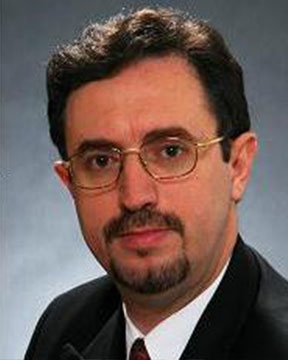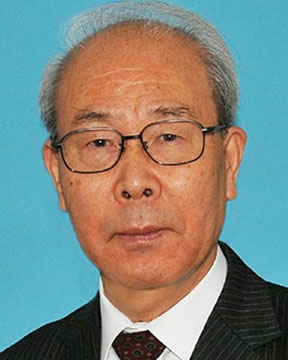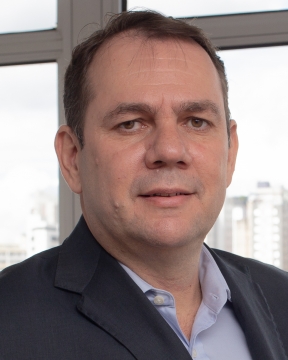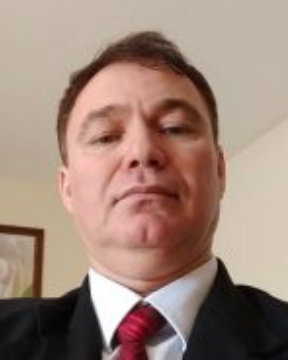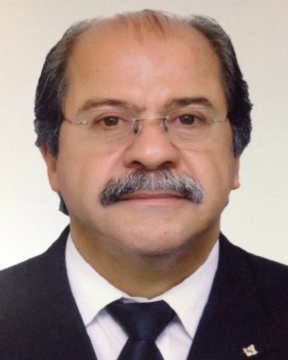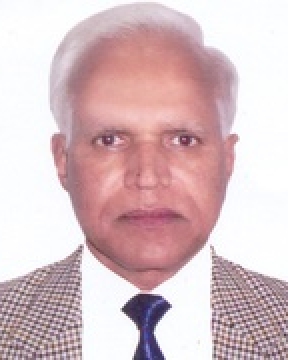On Advanced Sustainable Iron & Steel Making (9th Intl. Symp.)

Bio | CV | Publications
This major symposium is in honor of the distinguished work and lifetime achievements of Prof. Paulo Santos Assis, a very well-known professional with deep impact in the Advanced Sustainable Iron & Steel Making.
Prof. Paulo Santos Assis, 70, was educated at Escola de Engenharia from Federal University of Minas Gerais (UFMG), the leading Brazilian center for higher education and research. As Engineer he worked hard to implement new systems of injection of charcoal into blast furnaces, firstly in Acesita (now APERAM), and then at Mannesmann (now Vallourec). These both companies got millions of euros reduced by using the technology developed with his aid. Additionally he worked with the Energy Dept. of Acesita to reduce to zero the diesel consumption in the thermal treatment of special steels produced in the company.
He got his Master at UFMG in 1978, and then turned to Mannesmann six years afterwards. In 1984 he was invite to work at Mannesmann. During his first years he got a practice in Germany and He was invited to make his PhD at RWTH-Aachen. This one as started in 1987 and finished at 1991. Both academic degrees were related to first development of mathematical model and the second theory and practice for charcoal powder injection into furnaces.
In addition to the list of impressive honors above, Prof Dr. Assis received many important Brazilian and international awards and medals, among which are the AIST Grant in the USA, Honorary Prof. at Hebei University of Science and Technology in China, Inviting Prof. at M. Kh. Dulaty Taraz State (now Regional) University in Kazakhstan.
He has been distinguished lecturer in many outstanding universities Kanpur University; Kharagpur University, Tata Institute in Bangalore in India; Postech in POSCO, in South Korea.
Assis´s research contributions are presently disclosed in 350 primary research publications cumulating more than 2000 citations and corresponding to a "h-index" of 13 (ISI Web of Science, December 2022) with an average citations rate larger than 100 per year over the past 5 years.
Assis´s research has always been driven by curiosity and trying to give and develop technology. They are all characterized by critical thought, creativity, and an insatiable desire for understanding. His work has spanned fields as diverse as Waste treatment by using Bacteria, use of Microwave furnace to treat wood and to generate electric energy. This is sustained and complemented by very rigorous theoretical and practical treatment, which provides the framework to understand phenomena and from both conceptual and experimental points of view. As a result, Assis´s work in both experimental and theoretical iron and steelmaking has impacted broad areas of energy, including Diesel Generator and other types of energy, by using systems like Peltier and Sidbeck Efect to generate electricity profiting high temperature existing in the Iron and Steelmaking. By using bacteria it was demonstrated by him that it is possible to reduce more than 90% of Zinc in some treated wastes. The same idea came to use anaerobic treatment for transforming cattle breeding waste to produce biogas. This one can be used into Direct Reduction Process to produce sponge iron.
As an observer, there was a huge loss on Electricity generation caused by the Golden Mussel in Brazil and in other countries. We had more than 100 million US Dollars per year of loss because the infestation of Golden Mussel in our Country, starting in the last century. Then he coordinated a group of researchers in the last 4 years to study and develop technologies to understand how is the behavior of this GM and which technology can be employed to solve the huge problem connected with.
He rapidly recognized their tremendous potential to investigate biomass, and by extension, all of material, with possibility to solve one big worldwide problem, that means the increased GHG emission. He thus embarked in a rigorous practical and theoretical description and experimental demonstration of the development of methods for making well-defined and reproducible use of biomass in the iron and steelmaking, as well as use of bacteria to provide the transformation of organic waste into synthetic gas. In this context, he developed a model and patent to produce biogas by using organic waste, so as waste generated by cattle breeding to be used firstly in the Blast Furnace, then into the Direct Reduction Process. In his hands, these outstanding innovative tools led to important applications for iron and steel production wih around 95% of GHG emission reduction.
Through his innovative concept it can be proved that by using only the cattle breeding waste in Brazil, our Iron and Steel production can be increased 10 times more, with no use of coal and charcoal, improving not only the Environment, but Social advantages for Work labor in small Cities, avoiding increasing of Slams and giving value for the Society. Out of this, by using this technology, the cost of iron and Steel can be reduced, due to CAPEX and OPEX reduction.
A second major and outstanding contribution through its impact for the investigation of microwave use to get pyrolysis of organic materials to produce charcoal and energy. If you consider that the common process of Pyrolysis got cerca of 10 days, he proved that by using MW the time of conversion will be reduced 10 times less. This phenomena was due to the fact that the MW means use of Magnetism to make the pyrolysis, instead of Heat Conduction. This means a huge advantage for this challenged process. It was developped in Brazil a MW Furnace to produce around 250 kg per hour of charcoal. After pyrolysis, the gas and liquid was directed to diesel and Otto Generator to produce electricity. This can be sold in the market, giving a profiting of 100% of wood.
He has coordinated thesis on use of Artificial Intelligence by controlling Iron making process, like Blast Furnaces, Cokeries. By using Neural Nets it was proved the better quality f coke, so as coke rate reduction into the blast furnace, by production hot metal for steelmaking, with better quality.
This introduction is only a very brief overview of the extremely large breadth of Assis's innovative research, and those with the largest impact in the scientific communities were presented. To demonstrate his curiosity and versatility, one may think of his research developed in close cooperation with companies in Brazil, about the increase of productivity, better quality, less GHG emission in Brazil.
Contributions covering all aspects of Prof. Assis´s rich activity are welcomed, including both fundamental experimental and theoretical research, as well as applications in human life and activity or industry.
Contributed articles will be double peer-reviewed and published in Conference Official Proceedings, with an ISBN and an ISSN number and available through many indexes such as Scopus, EI index, Google Scholar, CiteSeerX etc. Selected contributed articles will also be published in reputable Journals.
ROUND TABLE DISCUSSIONS
A round table discussion open to everyone interested will be organized at a specific date and time during the symposium. It will be a platform for high level representatives of various industries, technologies, and academic disciplines to freely discuss and debate all topics of this symposium, and identify positive and efficient pathways towards sustainability in industrial practices, technologies, and research.
You are cordially invited to actively participate in this symposium by submitting and presenting a paper, or by attending the round table.
We look forward to meeting you in Panama, December 2023




